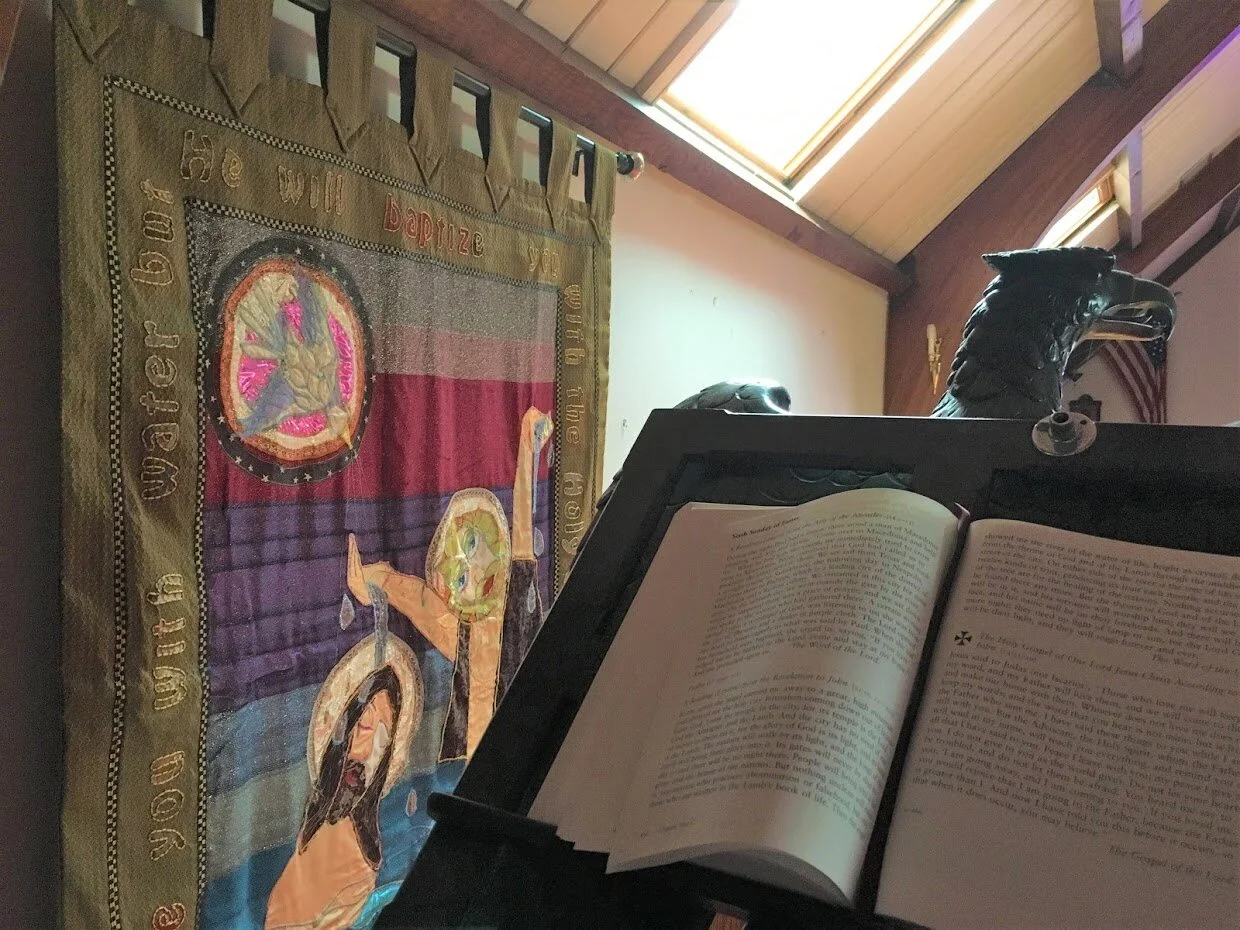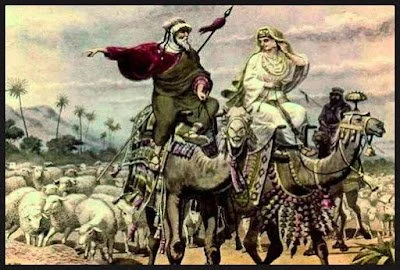We have all heard and seen conversations about the use of pronouns. Perhaps you have seen emails with a person’s name and the pronouns they prefer to use: she/hers, him/his, they/their. Do you wonder which pronouns God might use? Usually when I hear people talking about God, they use masculine pronouns. God is usually a He and usually a very masculine, assertive, angry he. Perhaps todays readings might offer us another image.
As we heard today’s reading from Genesis, I wonder what pronouns you would use to describe the action of God? Perhaps some of the images used in the reading might provide a clue. Water plays a critical role in this story. Water becomes the image of both new life and death. As the newly freed slaves stand on the shore of the Red Sea, they realize that Pharaoh’s army is fast approaching on their heels. Perhaps they might wonder if God has set them up with the Red Sea on one side and Pharaoh’s army on the other side. Yet God is preparing a way which they could never imagine. God is about to give birth to God’s new people
You know what happens when a newborn is about to enter the world: the waters break. Can you imagine this water event on the Red Sea as the birth of Israel as a people? You will remember that for the people of Israel, water, especially the water of the sea and the ocean, represent chaos. You will recall that when God first created the world, God’s Spirit blew over the chaos of a dark water covered world bringing light and order. When Moses stretches his hand over the chaos of the Red Sea, God’s wind blows again, brings order to the chaos, and creates a path for the newborn people of Israel to move through, a path from slavery into freedom.
Would you be daring with me and imagine God birthing Israel, letting the water from God’s womb break and a new path is created bringing forth a people into existence? We all know that when mothers are giving birth, they show themselves as mighty warriors, enduring profound pain as they bring new life into the world. So too our God shows herself a courageous mother, birthing her people with great power and splendor. We also know that mothers are powerful in protecting their children. We know God shows herself a powerful mother in vanquishing the Egyptians who are intent on destroying her child. The very waters of life which birth her infant Israel are transformed into the waters of death which defeat the enemy.
As we are talking about the power of mothers, let me shift our focus and look at another power of mothers: the power to forgive. Mothers know the weakness of their children, the challenges they face and the times they fail to meet those challenges.
Many of us have experienced the power of a mother’s forgiveness even before we ask to be pardoned. God, our Mother, shows us, her children this forgiveness. Each of us know that God forgives us even before we ask for pardon.
As Jesus tells us today, we are to forgive not once but seventy seven times. This number does not mean that you should have a calculator monitoring the times you forgive and stop when you reach 77. Jesus invites us to leave behind our childish patterns of holding back forgiveness and become like our Mother God, forgiving without number.
You may have heard how important forgiveness becomes in all our lives. You have heard that you should forgive others because you waste valuable spiritual and emotional energy holding grudges, plotting reprisals, stewing in negative energies. Yes, all that is true. But that is not the reason we Christians forgive.
We forgive because God forgives. We forgive because we have been forgiven. We forgive because God brings the energy of forgiveness into the world through our sharing God’s forgiveness with others.
Someone remarked that the primary Christian practice is forgiveness. Forgiveness moves us beyond the constraints of our sometime juvenile patterns of behavior. Forgiveness requires that we grow up, that we see one another as fragile persons who fail but try again, that we engage one another with grace and graciousness.
We forgive because we have been forgiven. Perhaps you have discovered the energy of our Mother God, our Mother who comes to set us free, to give us a new birth, who creates new connections among her children by the forgiveness she shows each of us. We are nourished at this table where we eat the body of the Crucified and Risen Jesus who forgave his executioners. We are nourished at this table to find the strength to forgive. Let’s pray that we be touched by that water of new birth, that we know the forgiving love of God, that we bring that pardoning love to all we meet.





















